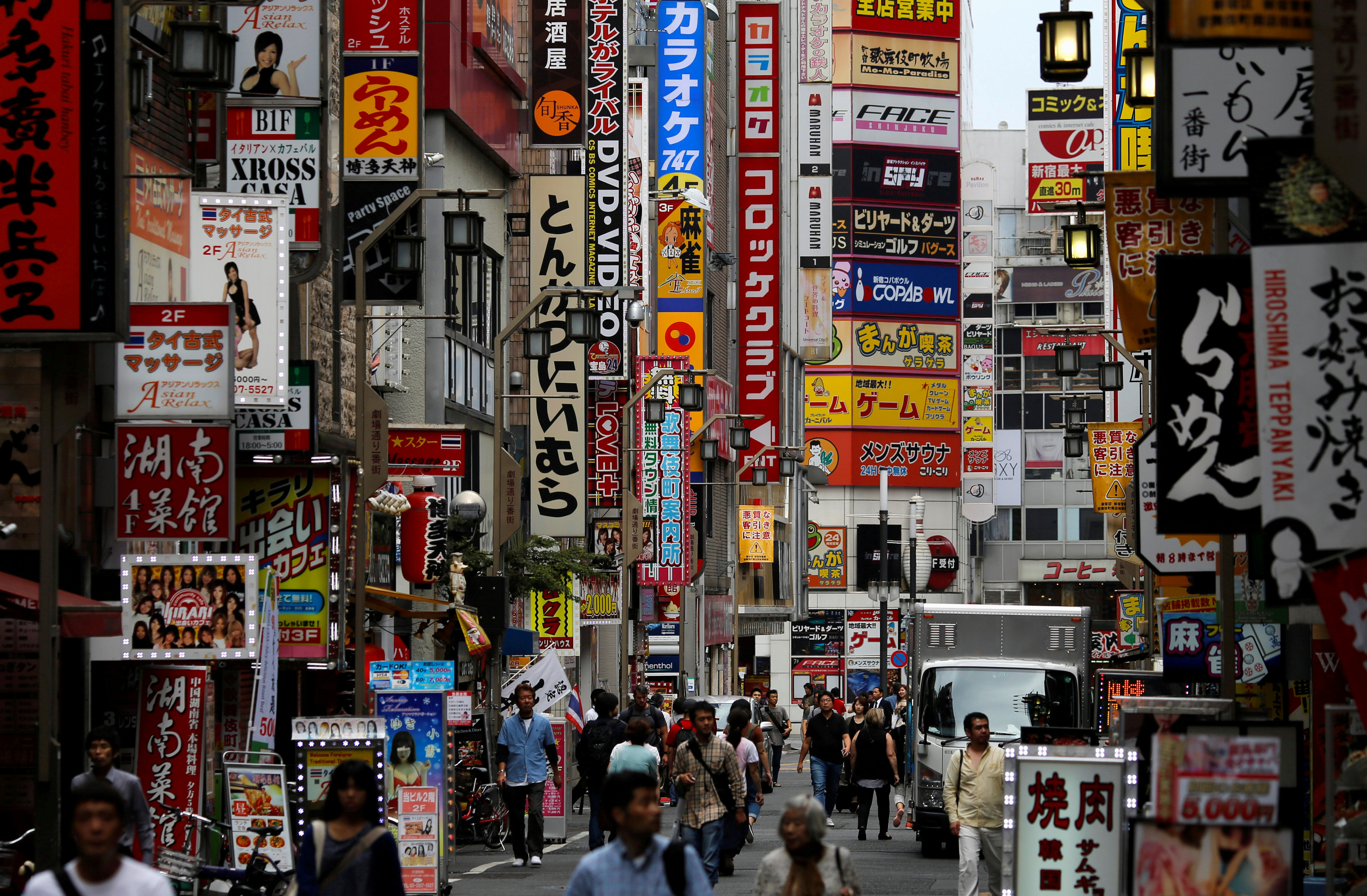
Amid a shrinking birth rate and aging population, Japan has been turning to foreign talent to cope. This includes attracting foreign students to study and stay on after graduating. But its rigid, ‘workaholic’ work culture is proving to be a high hurdle for overseas talent to jump over.
Warning bells on Japan’s population problem have long been rung. The official census from February 2016 shows that the country’s population has shrunk by almost one million in five years. Nearly a third were older than 65 in 2015; a number that may rise to 40 percent by 2050, research shows.
Efforts have been made in several areas to counter the dwindling population. Immigration rules were relaxed to attract more “skilled professionals”, with plans in the works to further ease restrictions.
In 2008, the Education Ministry launched the Global 30 project to make Japan into one of the world’s “global education hubs”. It aims to attract 300,000 foreign students into Japan by 2020 and to increase the number of Japanese studying abroad. Universities are expected to “internationalise” with subsidies of between ¥200 million and ¥400 million a year until 2013. With this, universities are expected to establish at least one English-taught course, while renowned universities such as Waseda University and University of Nagoya have increased the number of English-taught courses. Additionally, universities are actively promoting themselves regionally and globally.
Global 30 was then replaced by the Super Global Universities initiative when Prime Minister Shinzo Abe took over. Global 30 was criticised for focusing too much on recruiting foreign students instead of internationalising the universities. Super Global Universities now aims to improve its top universities’ world rankings and create globally-minded universities and students.
Lost in Translation

High school students enter a discount store in Tokyo’s shopping district, Japan. Image via Reuters.
Despite these plans, barriers remain to match foreign graduates with Japanese companies. These barriers start right from the hiring stage itself.
Temple’s Career Development Office manager Sawa Kentarō, told Nippon.com that while the number of graduates staying on after graduation has increased, their decision to do so may prove harder than they think.
One obstacle is the strict language requirement at most Japanese firms. “Firms expect candidates to have language skills equivalent to N1 of the Japanese Language Proficiency Test (JLPT),” said Kentaro.
Two Tokyo universities, Temple University Japan and Sophia University, plan to close this gap. Last November, they co-organized an English-language career fair to bring together companies that, as Sawa explains it, “are not sticklers about the JLPT’s N1.”
Conversely, Sawa also states that improving foreign students’ Japanese language skills remains an important priority. However, he stresses that “more companies should evaluate and open doors to students according to other skills.”
Overwork and Bureaucracy

Tadashi Ishii, president of Japan’s top advertising agency Dentsu Inc, bows during a news conference in Tokyo, Japan. Image via Reuters.
Last year, the death of 24-year-old Matsuri Takahashi, an employee in Dentsu, a top advertising agency in Japan, made global headlines. The cause was ruled as ‘karoshi’, i.e. death by overwork, a phenomenon that even has legal recognition in Japan.
Her suicide is only one symptom of the issues afflicting Japan’s work culture of long hours and excessive bureaucracy, drawing criticisms from its foreign skilled labour.
A Japanese government white paper revealed that a fifth of surveyed companies admitted that their full-time staff work dangerously long hours. Almost 11 percent of companies surveyed said they had full-time staff working at least 80 hours of overtime a month. Scarcely any enthusiasm can be seen by either government companies to uphold workers’ rights.
Speaking to Nippon.com, André Guillaume (not his real name), from France, thinks this puts Japan in an unflattering light. “The prevailing image is that employees at Japanese companies are workaholics,” he says. “It is hard for workers to take paid vacation in one lump the way you can at French companies. In addition, the office atmosphere can make it hard to even ask for time off.”
Japanese manuals and bureaucracy can be off-putting to foreigners too.
Decision-making starts with “the person running the project and extending up to his or her immediate superior, the section manager, and the division director. You can spend two to three days just waiting around for everyone involved to sign off,” said Guillaume.
A former German worker who worked in Japan lamented the over-reliance on manuals and lack of flexibility: “There was a manual for everything. I’d heard that as a rule Japanese companies like to rely on manuals, but I was shocked to the degree that this was true. I wanted to have more freedom in how I did my job, and at times I found the lack of it very frustrating.”
It is past time for Japan to tackle these issues but there are grounds for optimism. A Reuters poll showed a majority were reviewing working hours. Public outcry over the Dentsu employee strengthens Japan’s tight labour market. These are commendable signs.
Liked this? Then you’ll love these…
How we provide a true international experience: The American School in Japan
The impact of the English Language in an interconnected world







